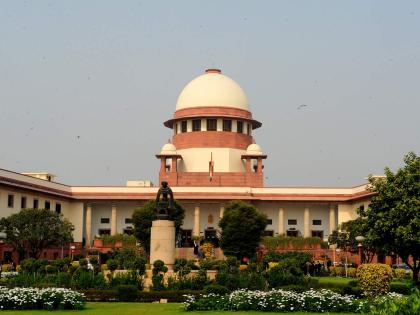Supreme Court Queries Removal of Secular and Socialist From Preamble: Can Adoption Date Remain Unchanged
By Lokmat English Desk | Updated: February 9, 2024 19:01 IST2024-02-09T19:00:39+5:302024-02-09T19:01:46+5:30
The Supreme Court raised concerns on Friday regarding potential amendments to the Preamble of the Constitution without altering its ...

Supreme Court Queries Removal of Secular and Socialist From Preamble: Can Adoption Date Remain Unchanged
The Supreme Court raised concerns on Friday regarding potential amendments to the Preamble of the Constitution without altering its adoption date of November 26, 1949.
A bench comprising Justices Sanjiv Khanna and Dipankar Datta posed this question to former Rajya Sabha MP Subramanian Swamy and lawyer Vishnu Shankar Jain, who have filed a petition seeking the removal of the words "Socialist" and "Secular" from the Preamble.
Justice Datta emphasized that while amendments to the Preamble are permissible, maintaining the original adoption date presents a unique challenge. He noted that the Preamble is distinctive in its inclusion of a specific date.
Swamy highlighted the 42nd Amendment Act passed during the Emergency period (1975-77) as a pivotal moment in the Preamble's history. Justice Khanna acknowledged the need for detailed discussion on the matter and scheduled further hearings for April 29.
Earlier, on September 2, 2022, the Supreme Court had consolidated Swamy's plea with another petition filed by Balram Singh and others, also seeking the removal of "Socialist" and "Secular" from the Preamble.
The inclusion of "Socialist" and "Secular" occurred through the 42nd Constitutional amendment, proposed by the Indira Gandhi government in 1976. Swamy contends that the Preamble should remain unaltered, as it signifies not only the Constitution's essential principles but also the foundational conditions that led to its creation, fostering a unified national community.
Open in app